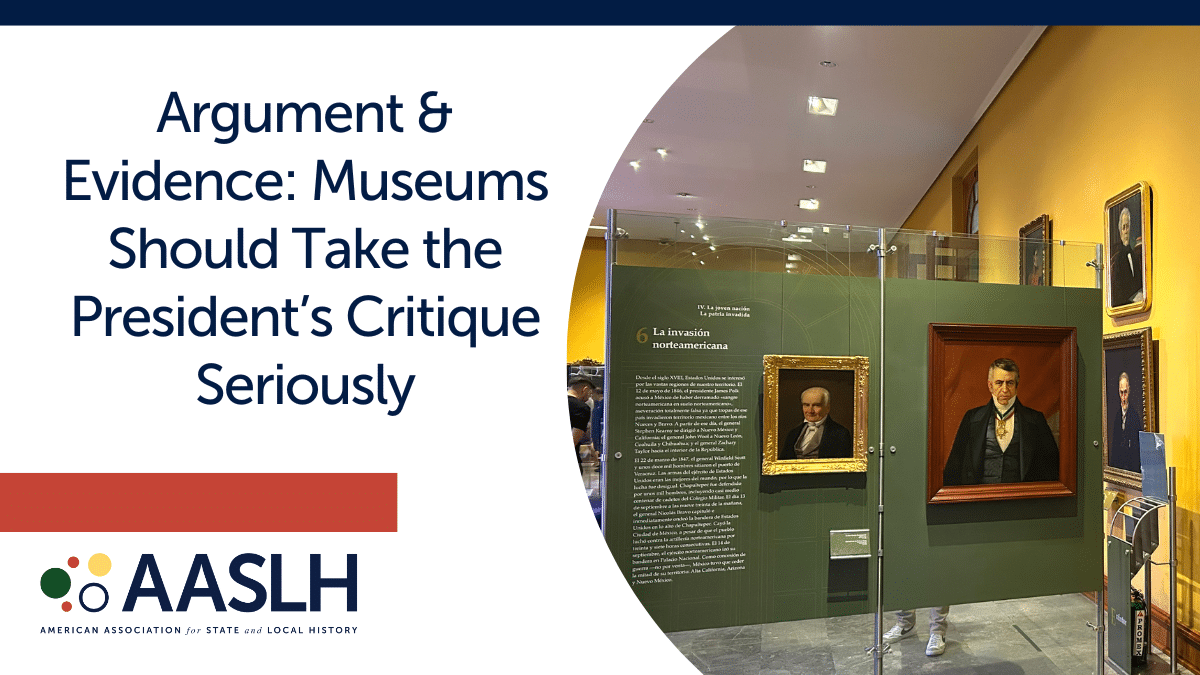
By the AASLH Field Services Alliance
At the 2019 Annual Meeting in Philadelphia, the Field Services Alliance led a tips session on fundraising for museum professionals. We workshopped pitches and asked participants to think about need statements in their appeals to donors. Bryce Gorman, Fundraising Educator at the Indiana Historical Society, shared ten tips for successful fundraising, which can be scaled for any sized organization.
-
- It all starts with a plan. Fundraising is a very intentional process. Every step should be planned. Who do you plan to solicit? When? How much? For what purpose? By setting a plan in place, you can determine your objectives, set priorities, and prepare for the whole year.
- Tell your story. Your organization has a unique story, and it should be shared with donors. Why do you exist? What is your role in the community? Your organization can engage donors by sharing stories of your work and the people who have benefited from it. Invite your donors to become part of your story.
- Define your needs. Any funder, big or small, wants to know what you plan to do with their money. You can achieve this by aligning your fundraising goals with your mission. If your mission is to preserve a historic structure, your fundraising goals should support that.
- Demonstrate impact beyond your organization. Impact drives many donors’ decision-making, and it should be part of your case for support. They want to know what their donation will do for you and the community. This impact needs to go beyond your property.
- Create a call to action. Having a case for support allows you share your story and vision for the future, but there must be a call to action. What do you want your audience to do with this information? Often, the answer is writing a check, but it could also be volunteer or put your organization in their estate. This is the first stage in creating a partnership with a donor, letting them know how they can act and help.
- Build your case. When you make your case, you are telling your story. Demonstrate your specific need, and the best solution for it. You want to show how this need is a priority. If you ask a donor to pay for a new A/V system when you have a mold problem, that donor may question whether you have your priorities in order. It’s also helpful to frame your case in an emotional response. Bear in mind, this goes beyond a binary happy/sad response. For instance, hope, gratitude, pride, and inspiration are all positive emotions you can use in your case.
- Practice. Any case for support, pitch, or solicitation should feel natural. Rehearse your pitch in front of a mirror. The words may feel different coming from your mouth than they appear on paper. Adjust your solicitation to fit you. Share your case draft with colleagues or your board.
- Develop relationships. Fundraising is primarily relationship-building, but that doesn’t mean it’s glad-handing. This is thoughtful and intentional relationship-building. As you seek to raise funds, you will be creating relationships with people and other organizations. You are sharing your vision. The goal is to make their relationship with your organization the best it can be. You are building trust with your donors, letting them see that you are worthy of their support.
- Ask. After spending time developing a strong relationship with your donor, the ask should feel natural. Have an exact ask amount, purpose, and timeline in mind. For example, “Would you be able to make a $250 contribution to support our archives and our new digitization process for the county history?” Be ready for both a yes and no. If the answer is no, be upfront and ask if there is a better time, purpose, or amount that would work for the donor.
- Thank you. These two words are probably the most meaningful phrase in fundraising. They signify a new step in your relationship with a donor. Once a donor had decided to support you, they are saying “Your organization is important to me, and I trust you to use these funds wisely.” In return, your “thank you” is short for “Thank you for caring about our organization and trusting us. We will be fiscally responsible and show our gratitude to you.” If you do a good job of building that trust, your organization will be rewarded with committed relationships, loyal donors, and larger gifts.
What is the Field Services Alliance? The Field Services Alliance (FSA) is an organized group of individuals, offices, and agencies that provide training opportunities, guidance, technical services, and other forms of assistance to local historical societies, archives, libraries, and museums in their respective states or regions.
Want to see more fundraising resources? Check out the AASLH Resource Center.



